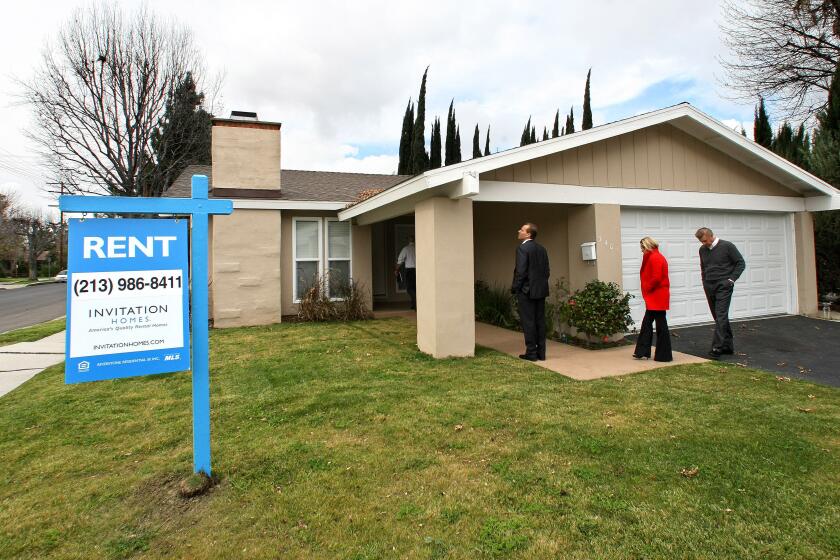Q&A: Why must landlords give some tenants a 60-day notice to vacate?
Question: I’ve owned rental property for over 20 years and am mystified about why some parts of a rental agreement are overridden by the California Civil Code and some are not. My rental agreements say a tenant and I must give each other a written 30-day notice to end the tenancy, but the law says I must give a 60-day notice for those tenants who have resided in the property for over a year. Why do I have to give a 60-day notice and the tenant is only responsible for a 30-day notice?
Answer: On the surface, this aspect of landlord/tenant law may sound confusing, but there is a simple explanation.
In general, a tenant cannot waive certain rights given to him or her by state law, and a landlord cannot state conditions that are contrary to landlord/tenant state law.
For example, if you had a clause in your rental agreement that stated you would settle a security deposit within 35 days after a tenant vacated, that clause would not be valid since landlord/tenant law states that 21 days is the maximum time period, even if the tenant agrees with the 35-day time period clause.
California Civil Code section 1953 lists the tenant rights that cannot be waived in a rental agreement or lease. These include the right to proper statutory notice, as well as the right to habitable or tenantable premises, restrictions on a landlord’s right to enter the premises and a proper and timely accounting of the security deposit.
Excellent sources of information are the Nolo Press publications “Landlord’s Law Book: Rights & Responsibilities” and “California Tenants’ Rights.” They should be available at your local bookstore or library.
For more information, contact a local fair housing or mediation program, or Project Sentinel at (888) 324-7468, or visit https://www.housing.org.
Van Deursen is director of Dispute Resolution Programs for Project Sentinel, a Bay Area nonprofit. Send questions to info@housing.org.
More to Read
Sign up for Essential California
The most important California stories and recommendations in your inbox every morning.
You may occasionally receive promotional content from the Los Angeles Times.






